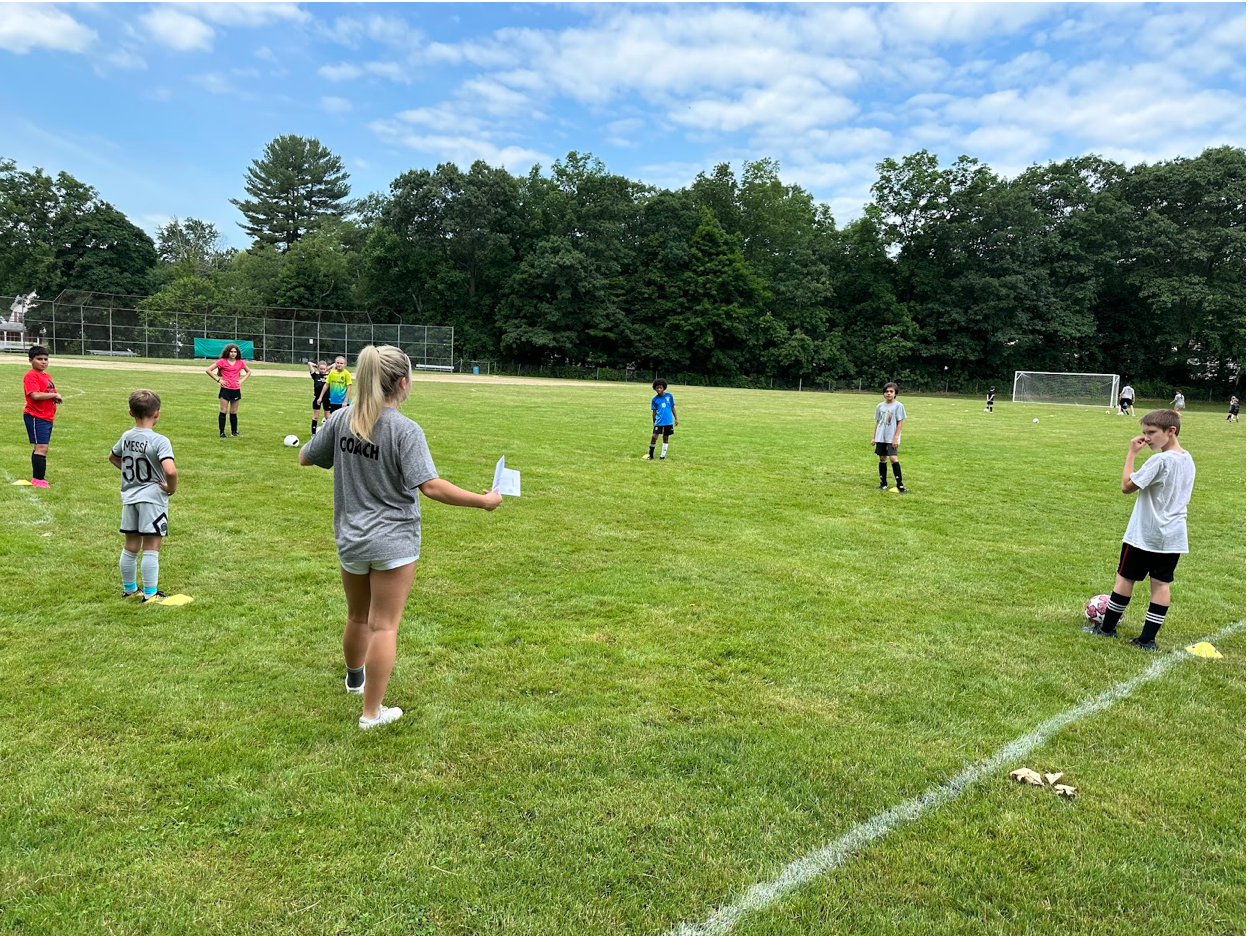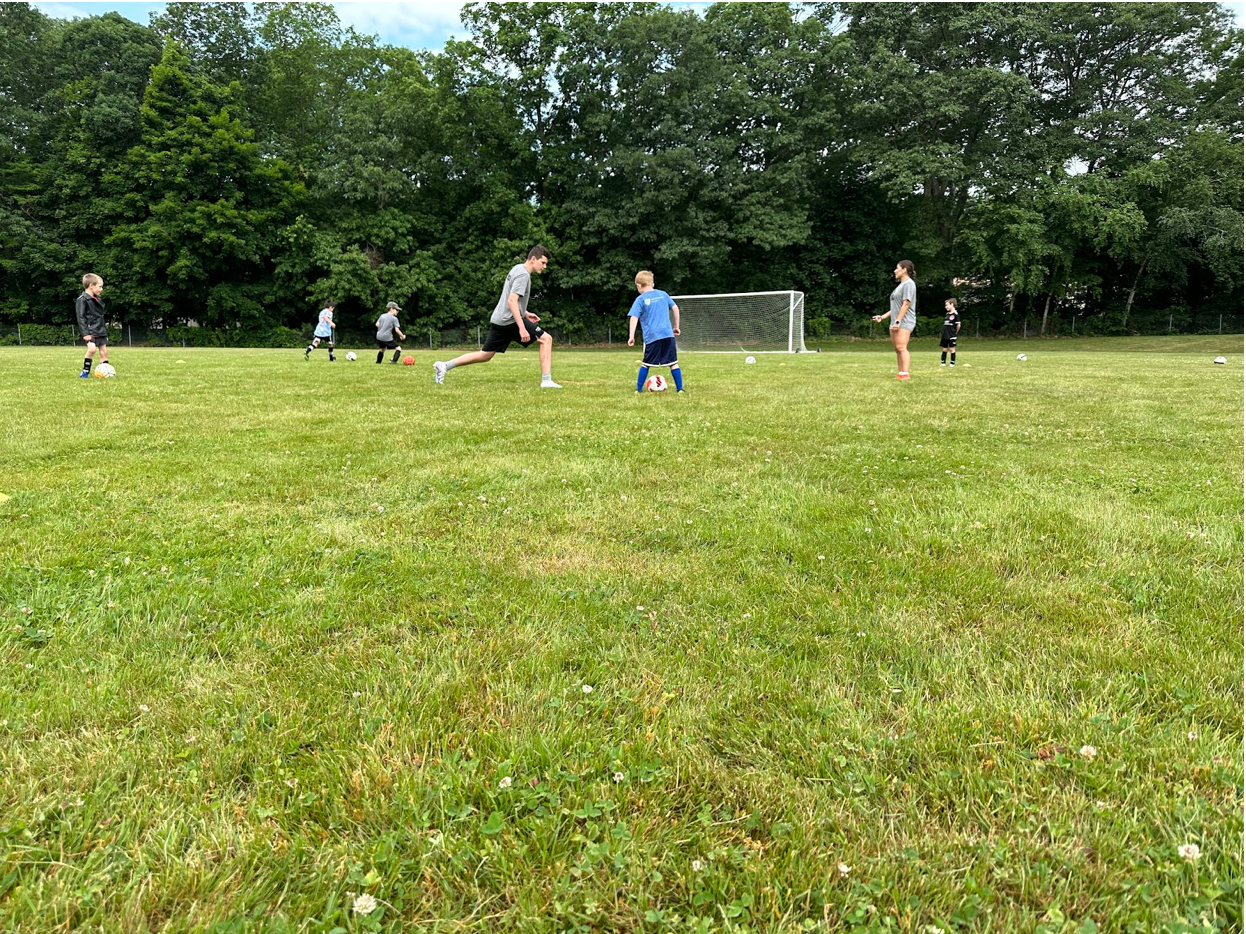Youth Coaching: Identifying the Problem

From my role as the Director of Sports Performance for the New England Revolution Academy to my current coaching position at Prototype, I have amassed over a decade of coaching experience. Throughout this journey, I have been fortunate to work with athletes across various sports, with a special focus on youth soccer and sports performance. At Prototype, I am currently gearing up for another summer of leading our coaches at Nike soccer camps, coaching high school varsity preseason programs, and facilitating youth leadership training programs.
My passion for developing young athletes on and off the field has driven my personal journey in the realm of youth sports. Drawing on my extensive background, I emphasize the importance of strong coach development as a key component of the success of young athletes. Coach development at the grassroots level can have a remarkable impact on the lives and development of these aspiring athletes.
When I embarked on my coaching journey, I was a newly hired staff coach with the NE Revs academy, primarily selected based on my playing career. While my soccer background helped me demonstrate technical skills, I had limited experience in teaching it, let alone effectively communicating with and nurturing the development of young soccer players. My first assignment was with the Sudbury MA grassroots program, coaching kids ages 5-6 on Sunday mornings. This program consisted of around 12 teams, each with about 8 kids, coached by dedicated parents. My role was to kick off the day by gathering everyone and demonstrating the skill/drill we would be focusing on for the first 30 minutes. Then, the teams would break up and run their own practices before playing a game for the last 45 minutes. During practice time, I would check in with all the coaches and assist them with their sessions.
I share this story because, at the time, I didn’t realize it, but I got to witness the wide range of coaches working with these kids. Some were really good, some were really bad (we will delve into that later), but the majority were just parents willing to sacrifice their weekends to help their kids and community—a truly commendable act. It’s important to note that even in a town where they were willing to invest in professional coaches and provide a curriculum, there was still a significant lack of education for these coaches. In most town youth sports programs, such resources are simply not available. It’s usually a matter of luck whether you get a mom or dad with some playing experience who is willing to invest the time in coaching the team. Regardless, any parent who is willing to give back to their child’s community and invest time deserves praise, especially considering they often have to deal with the complaints and expectations of other parents who aren’t willing to do the same. This brings me to my main point: I don’t believe the core problem of youth sports coaching lies solely with the coaches themselves; it’s more about the system and the resources they are provided. In this blog post, I aim to shed light on some of the major problems I’ve identified, along with relevant statistics. In future blogs, I will delve deeper into possible solutions and share my thoughts on how to address this problem.
To emphasize the significance of coaching, consider this staggering statistic: 95% of Fortune 500 CEOs played college sports. It highlights how good coaching can lead to great success in the future endeavors of these athletes.
Challenges Due to Lack of Coach Education:
Despite the tremendous amount of time, money, and research invested in developing young athletes, there is often a significant oversight when it comes to the development of youth coaches. We prioritize providing young athletes with top-notch facilities, cutting-edge equipment, and specialized training programs, but we must also recognize that the coaches who guide and mentor these athletes are equally essential to their development.
Unfortunately, the lack of emphasis on coach education and development presents several challenges, including:
- Inconsistent Coaching Approaches: Without standardized coach education programs, coaches may resort to inconsistent coaching methodologies. This variation in coaching styles can hinder the overall development of young athletes and create disparities across teams and programs.
- Limited Understanding of Child Development: Many coaches enter the youth sports realm with a deep passion for the game but may lack a comprehensive understanding of child development. Consequently, they may struggle to adapt their coaching techniques to align with the specific needs and abilities of young athletes.
- Negative Coaching Behaviors: Insufficient education and development opportunities for coaches can lead to negative coaching behaviors that harm the athletes’ overall well-being. Coaches may unintentionally resort to excessive pressure, harsh criticism, or favoritism, which can have detrimental effects on the athletes’ self-esteem, motivation, and love for the game.
These challenges have a direct impact on the development of young athletes, limiting their potential and overall growth. The consequences include:
- Stunted Skill Development: Inadequate coaching approaches hinder the progression of fundamental skills and impede the athletes’ overall development. Comprehensive coach education equips coaches with the knowledge and tools to design age-appropriate training programs, identify areas for improvement, and provide targeted feedback to facilitate skill development.
- Decreased Participation and Retention Rates: When young athletes do not receive quality coaching experiences, their engagement and interest in sports may wane. This can result in decreased participation rates and early dropout from organized sports, robbing children of the physical, social, and psychological benefits associated with sports involvement.
- Missed Opportunities for Character Development: Sports provide a valuable platform for character development, but without strong coach education, these opportunities are missed. Coaches lacking proper training may overlook the chance to instill core values such as teamwork, resilience, and leadership in their athletes.
Addressing the challenges faced in youth coaching requires a collective effort. It’s crucial to prioritize coach education and development alongside the investments made in facilities and training programs for young athletes. By providing coaches with the necessary tools, knowledge, and ongoing support, we can create an environment where all coaches can effectively nurture the development of young athletes and contribute to their long-term success.
In future blog posts, I will delve deeper into possible solutions and share my thoughts on how to bridge the gap in coach education, empowering coaches to better serve their athletes and create a positive and enriching youth sports experience. Together, we can create a system that cultivates not only skilled athletes but also confident, resilient, and well-rounded individuals. Stay tuned for more insights and ideas to enhance youth coaching!

The post Youth Coaching: Identifying the Problem appeared first on Prototype Training Systems.
Previous Blogs



Climb to New Heights
Prototype Training Systems is more than a gym - it is a lifestyle. Join us today!
Book a free no-sweat intro session. Your coach will give you the best recommendation and program for your goals.
Sign up and start your journey at Prototype!
Quick Links
Contact Us
50 East Main St, Unit 1, Westborough, MA 01581

